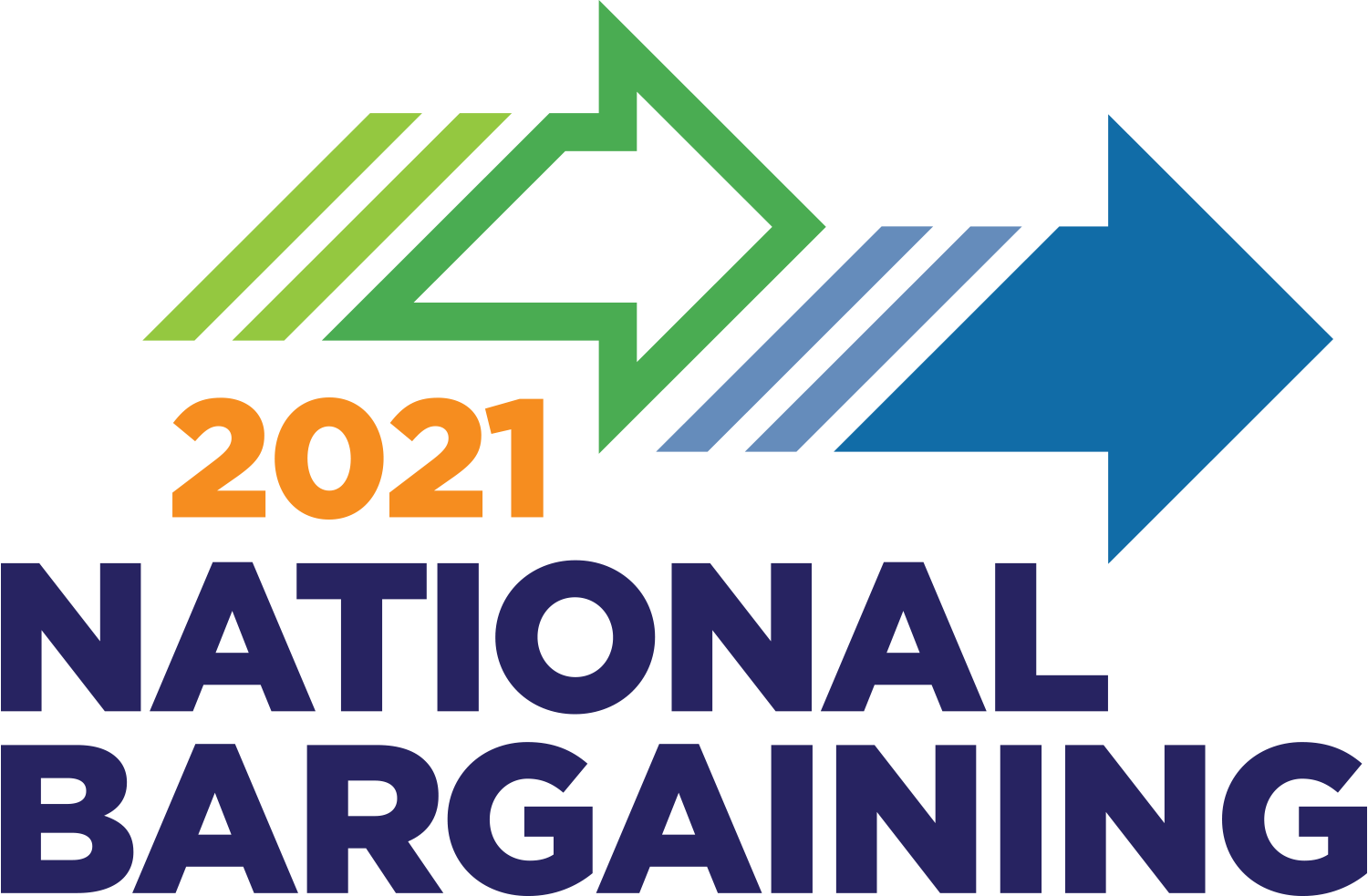
Bargaining on the 2015 National Agreement concluded successfully when 150 union, management and physician representatives approved a tentative agreement.
If ratified by the unions and OK'd by the organization, contract to take effect Oct. 1
Ten weeks of national bargaining between Kaiser Permanente and the Coalition of Kaiser Permanente Unions concluded Saturday, June 6, when 150 union and management representatives approved a tentative 2015 National Agreement. The agreement now goes to the 28 union locals that compose the coalition for ratification and to Kaiser Permanente senior leaders for approval.
The three-year tentative agreement is designed to help unionized workers and managers achieve quality, affordability and safety of care; prepare for jobs of the future; and develop innovative solutions to health care challenges. The agreement also will enable our 3,500 unit-based teams to better deliver award-winning care and service to Kaiser Permanente’s more than 10 million members and patients.
“This is an outstanding agreement that deepens our ability to provide affordable, high-quality care to our members and patients,” says Dennis Dabney, the senior vice president of National Labor Relations and Office of the Labor Management Partnership. “Kaiser Permanente leads the industry because it is a great place to work and a great place to receive care—and the two are inseparable.”
“We’re on year 18 of a remarkably successful strategy,” says Hal Ruddick, executive director of union coalition. “Our contract is better than ever, Kaiser Permanente’s quality and service scores are higher than ever, and the organization and unions are both healthy and growing. Partnership pays off for workers, consumers and mission-driven organizations like Kaiser Permanente.”
Agreement highlights
The agreement includes wage increases in each year of the agreement (see specifics below), provides operational flexibility and bolsters joint problem-solving capabilities. It builds on the successful 2012 National Agreement, strengthening provisions for workplace health and safety, providing additional funds for workforce training and development and ensuring the consistent application of partnership principles.
The new three-year tentative agreement includes:
- Across-the-board wage increases in each year of the agreement: All employees in Northern and Southern California represented by a coalition union receive 3 percent increases in the first two years and 4 percent in the third year. Employees in the regions outside of California represented by a coalition union will receive a 2 percent increase each year of the three-year agreement. In addition, they will receive a 1 percent increase at the end of the third year.
- Enhancements to benefits such as dental coverage, life insurance and tuition reimbursement. The tuition reimbursement was increased to $3,000 per employee per year. For the first time, tuition, dental coverage and life insurance are standardized for coalition union members across all regions.
- A long-term solution that protects retiree medical benefits for current and future retirees, with no net increase to retirees’ out-of-pocket expenses, while reducing liabilities associated with those benefits.
- Increased funding to the Ben Hudnall Memorial Trust and the SEIU UHW-West and Joint Employer Education Fund to ensure career development for Kaiser Permanente’s diverse workforce.
- Improved methods for assessing unit-based team performance and for spreading and adopting successful practices.
- Updates to our groundbreaking Kaiser Permanente Total Health Incentive Plan, which rewards employees for healthy behavior and provides incentives for collective improvement.
- Joint participation on community health projects by the coalition unions in KP’s local and regional Community Benefit programs.
Next steps
Our agreement is the largest private-sector contract in the United States this year. Once it is approved by Kaiser Permanente senior leaders and ratified by union members this summer, it will take effect Oct. 1, 2015, and be in effect through Sept. 30, 2018.
The impact of the agreement “goes beyond the words on paper,” says Jerry Vincent, the Northern California region’s director of Labor Relations. “It lays the foundation for us to continue to provide quality, affordable care for many years.”
“There were some tough moments,” Denise Duncan, RN, the executive vice president of UNAC/UHCP, says of the negotiations. “But people came back together. It was a reminder that our national agreement—and our partnership—is very strong, and we keep making it better. There’s nothing like it anywhere else.”
For more information, see www.bargaining2015.org.
